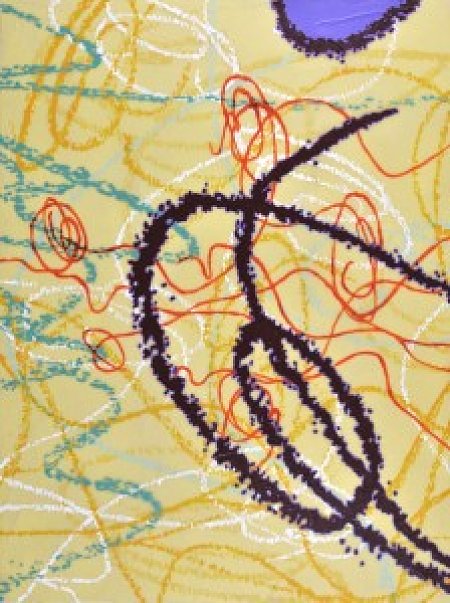
Numbers
When I would tell a butcher next door that I am a writer in the making, he would summarize for me the plot of the recent crime novel he had read (the plot as ghastly as the meat that he sold, leaving blood stains on his white apron), and then he’d wink and look up, as though peering through an imaginary hole into Olga’s apartment, and would say something like: “Those Scarfati were dirt poor when they arrived here from France a hundred years ago, and now they are so full of themselves they won’t even talk to a butcher… They publish books, plain books with numbered pages in which I sometimes wrap meat, tenderloin on page five, ribs on page two hundred three, and they’ve got a special talent for turning these books into homes and villas. Look at them: they have healthy complexions, and their children eat quality meat, not the stuff I sell to weathered widows who can only afford big bones with their crinkled small bills; these Scarfati are quite a success”–and he would laugh, and his huge belly would move, so that I would feel rather repulsed and even nauseated and not sure anymore of why I had again started talking to him. Maybe because of my loneliness? I have no friends and no foes, and sometimes I’m so absorbed in reading and writing that I forget to turn the calendar page…
Recently the butcher, when I ran into him outside an elevator, asked me, “How come you never visit my store? You never bought my pork! And you never played with my daughters! Something’s wrong with you, isn’t it? You are not like everybody else, right?” and I felt that there was something else he wanted to utter, but he hesitated and didn’t say the full truth of what was on his primitive, meaty mind.
I hesitated to tell him that I didn’t buy meat from him because I have a very delicate stomach and I don’t eat meat, since it makes me feel sick. I just stood mute and stared at him, trying to see whether there was anything hidden behind these harsh words. Apparently ashamed by his blatant outburst, he suddenly mumbled: “Never mind, Rita!” Then added: “Listen, if you have problems, just let me know–I’m not such a beast as you imagine me to be, and I can even be useful to you”–and I realized that maybe he indeed had a hidden door in him, which would lead me past his fatty and ugly appearance to some well-hidden, precious spot.
“I can hide you in my shop when the time comes,” he uttered, and I shivered because the word on my mind–“hidden”–coincided with this uttered word. The word “hide,” apparently, was becoming important.
Later I noticed that neighbors stopped saying buon giorno to me, as though they were trying to turn me into Olga Ferrara. How were they able to sense that I was like her? Was it truly because I am part-Jewish, or was it because of this “air of superiority” that I have, according to my father? I am fair-skinned and my hair is not at all curly, as the hair of Jews is depicted in Fascist newspapers. If something stands out in the crowd, it’s my somewhat arrogant look. Papá laughs at my saying that this is because I read too much philosophy, but when he checked my eyesight, he realized that it was because of my far-sightedness, a trait shared by him. I never thought of myself as anything but Italian, but apparently nationality is becoming crucial–just like the word “hide.”
Yet, literature is above all: above skin color and local language, and that’s why I have been focusing on my craft instead of a cranium’s shape. There is no way circumstances will prompt me to jump from the fifth floor, because, as a writer, I have a lot to say to the world. Because of this talent, I have to preserve myself no matter what blood runs in my veins.
II.
As an aspiring writer trying to spring onto my feet, I knew that it was not by chance that I lived only two floors down from Olga, the niece of the prominent publishers.
Her uncles owned the publishing house Fratelli Scarfati which not only took under its wide wing Edmondo de Amicis and Gabriele D’Annunzio and just about every revered Italian man and woman of letters, but also wined and dined them and threw them lavish literary parties. For me, such proximity was like a sign, an arrow showing me the right path.
I thought that this was the way for a writer: to be published by a well-respected publishing house like Fratelli Scarfati and then to be able to buy villas and vineyards and see how words turn into material wealth.
Every time I would spot Olga sitting outside on a bench with a leathery book with gold embossing, I would ask, “Another Fratelli Scarfati production?” And she would nod, “Yes, this is an avant-gardist Marinetti” or “Yes, Fratelli Scarfati published this novel by Pirandello, and this is the second edition, because the first was so popular that it sold out within one month!” I liked repeating the words “Fratelli Scarfati,” because it made me feel close to them: I am an unknown, but already I know somebody from the majestic and mysterious literary world.
